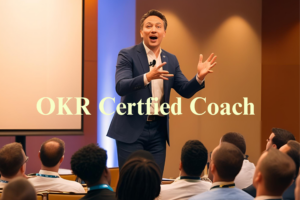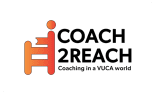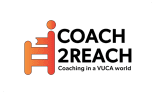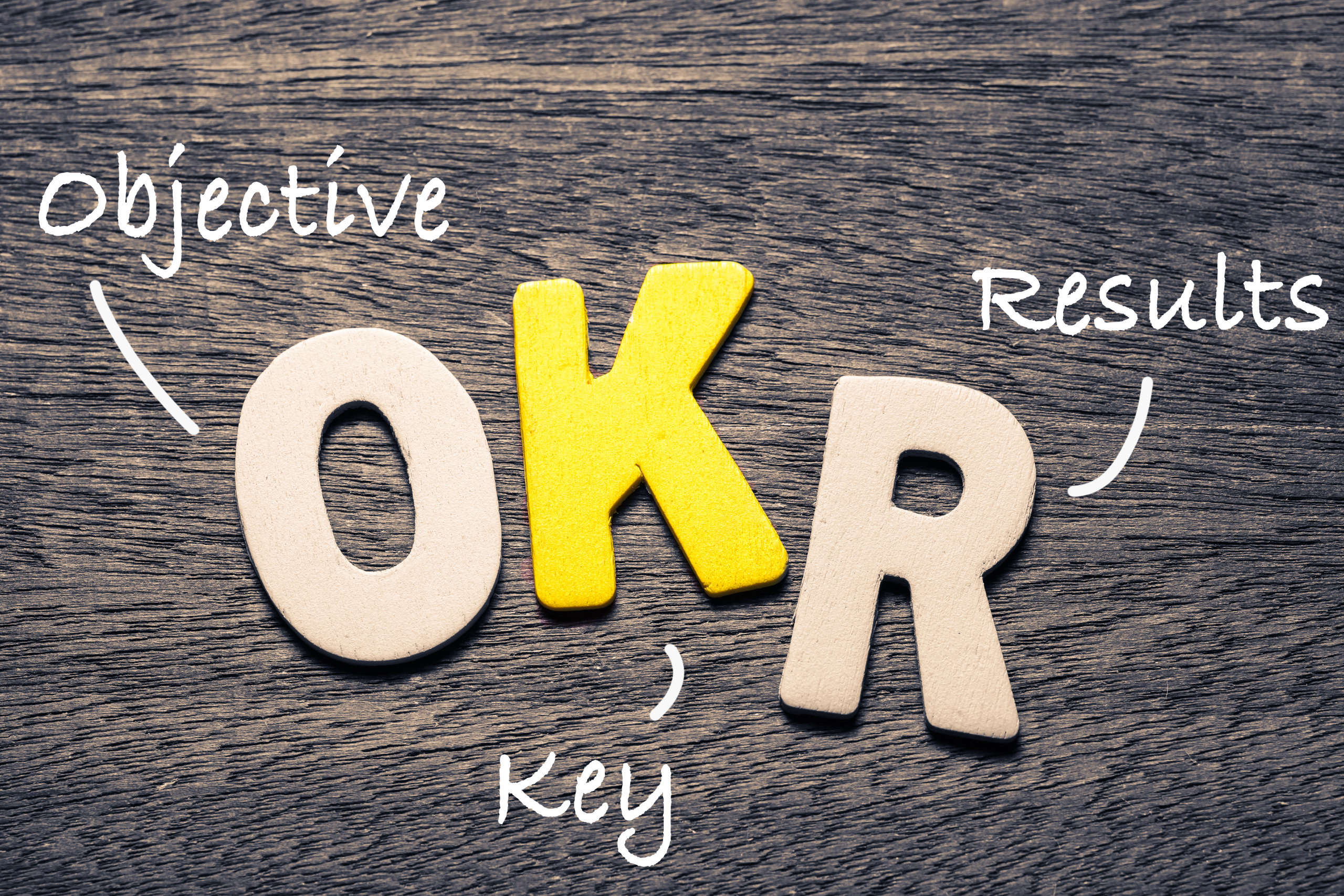Ultimate Guide To OKR – Objective And Key Results

Ultimate Guide To OKR – Objective And Key Results

Objective and Key Results, commonly known as OKRs, is an effective goal-setting system widely used in organizations to create alignment and engagement around measurable objectives. This guide provides a comprehensive overview of the essential components of implementing successful OKR initiatives within an organization.
In addition, this blog outlines potential pitfalls and best practices for maintaining effective OKR coaching over time. Finally, it discusses ways organizations can use OKRs to improve performance across all departments. By understanding Objectives and Key Results more thoroughly, organizations can better ensure their success by ensuring clear communication, focus on results-oriented outcomes, and continual learning from experience. Coach2Reach USA provides the best training program in OKR or Objective and Key Results Certification.
Meaning Of OKR
The Objective and Key Results (OKR) is an acronym that describes the framework for goal setting, performance management, and continuous improvement. It was first introduced in 1975 by Intel co-founder Andy Grove to align corporate goals with individual objectives. The OKR framework has since been adopted by many companies worldwide, including Google, LinkedIn, Microsoft, and IBM.
An OKR Certified Coach has been trained in the principles of the OKR system and can help organizations implement it effectively. An OKR Certificate can be obtained through online training programs that teach entrepreneurs how to apply this methodology in their businesses. These courses typically cover goal-setting techniques, measurement strategies, feedback loops, and continual learning practices.

Definition Of OKR
OKR, or Objective and Key Results, is a goal-setting methodology developed by Andy Grove, the former CEO of Intel. It is designed to align team objectives with organizational goals. The OKR process consists of two parts: Objectives which are qualitative statements that define what you want to achieve, and Key Results, which are quantitative measures used to track progress toward achieving an Objective.
OKRs have become increasingly popular among organizations looking to improve performance management and increase team accountability. Several online certification courses are available for those interested in implementing OKRs within their organization. A certified practitioner can help guide companies through this process effectively, giving them the maximum benefit from using the framework.
OKR Training & Certification Program
OKR training and certification programsprovide individuals with the knowledge and skills to implement an OKR system effectively. These courses are designed to help participants understand how to develop meaningful objectives, set effective key results, track progress, measure success, and use data-driven insights for organizational decision-making. The curriculum includes topics ranging from goal-setting theory and best practices to real-world case studies on successful implementations of OKRs.
The value of OKR certification ultimately lies in its ability to improve individual performance through better understanding and implementation of Objectives & Key Results (OKRs). By giving staff members the tools to master this technique, businesses can unlock higher productivity levels across teams and departments while driving measurable improvements in overall business performance.
What Is OKR Coach Certification?
OKR Coach Certification is a program that provides individuals with the knowledge and skills required to become successful coaches in supporting organizational objectives using Objectives and Key Results (OKR). The OKR Coach Certification program equips participants to understand OKRs, how they work, why they are important, and how to effectively coach teams on setting and tracking their OKRs. Additionally, the curriculum covers core leadership and coaching competencies such as understanding team dynamics, developing trust-based relationships, building self-awareness within teams, and more.
The OKR Certification Program includes two components: a training course that provides foundational knowledge on OKRs; and an assessment component where participants demonstrate their ability to apply what they have learned through practical exercises. This OKR certificate can be used for professional development or job qualifications when seeking employment related to OKRs or leading/coaching teams.

Fundamentals Of OKRs
An OKR stands for Objectives & Key Results. It is an effective goal-setting framework that helps companies set objectives and track progress toward achieving them. This OKR framework has been adopted by many of the world’s leading organizations, including Google, Amazon, Apple, Microsoft, and Facebook.
The fundamentals of OKRs include:
– Setting Clear Goals: The first step in setting up a successful OKR program is to define clear goals that align with company strategies and initiatives. These objectives should be specific, measurable, attainable, relevant, and time-bound (SMART).
* Define what success looks like To ensure all stakeholders are on the same page when defining success metrics for each objective.
* Establish achievable milestones: Set realistic deadlines for each key result so teams can track their progress effectively.
* Prioritize activities: Assign priority levels to different tasks based on importance or urgency to help focus effort where needed most.
– Tracking Progress: Once objectives have been established and assigned key results, tracking progress becomes essential. Regularly monitoring performance shows how well targets are being met and allows course corrections if necessary. Important tools used in this process include KPIs (key performance indicators) and dashboards which provide at-a-glance views of how projects progress over time.
– Adapting Strategy: As conditions change within the organization or its external environment, flexibility becomes important when managing OKRs. Adjustments to existing plans or pivoting strategies may become necessary to stay ahead of the competition or capitalize on new opportunities. Frequent check-ins between team members can identify areas needing extra attention before problems arise.
OKR Model – Leadership With Objectives And Key Results

The OKR Model is a goal-setting method to prioritize objectives and track progress. It stands for Objectives and Key Results, which are the two critical elements of this model. Objective statements define what needs to be achieved overall, while key results help measure how far an objective has been accomplished. This model is particularly useful in leadership roles as it clarifies expectations and outcomes that must be reached.
|Objective |Key Result 1 |Key Result 2 |
| Develop new product feature|Launch by end of quarter | 60% customer satisfaction rating |
| Grow market share | 10% increase compared to last quarter | 25% higher than industry average|
By using OKRs, leaders can focus on important tasks and set realistic, measurable, achievable goals. Furthermore, they can easily identify bottlenecks or areas needing improvement due to clear visibility into performance metrics. Additionally, this model allows team members to collaborate since everyone’s efforts directly contribute towards achieving organizational objectives.
OKR Certified Coach
 OKR Certified Coaches are professionals trained to help organizations and individuals use the Objective and Key Results (OKR) methodology. OKR Certified Coach guides clients in creating an effective OKR strategy, running successful OKR cycles, managing progress against goals, and measuring results. The OKR Certified Coach will also assist with setting up processes for goal alignment across teams and departments and creating a culture of accountability within the organization.
OKR Certified Coaches are professionals trained to help organizations and individuals use the Objective and Key Results (OKR) methodology. OKR Certified Coach guides clients in creating an effective OKR strategy, running successful OKR cycles, managing progress against goals, and measuring results. The OKR Certified Coach will also assist with setting up processes for goal alignment across teams and departments and creating a culture of accountability within the organization.
OKR Certified Coaches typically come from various backgrounds, including business consulting, organizational development, human resources management, or talent acquisition. In addition to providing in-person coaching sessions, they may offer virtual one-on-one or group workshops via video conference. Most OKR Certified Coaches have experience working directly with senior executives at leading companies to ensure that the most appropriate strategies are implemented for success.
Conclusion
Using OKR Objectives and Key Results effectively sets goals, tracks progress, and measures success. Understanding how to implement the OKR Model effectively provides a strong foundation for individuals looking to succeed in their respective roles. The OKR training and certification program allows professionals to gain a comprehensive knowledge base on the fundamentals of OKRs and develop coaching skills necessary for leading others with OKRs or objectives and key results. Those who complete the course will be eligible for the OKR Certified Coach designation, which signifies expertise in using this toolset and providing guidance on its implementation.
Popular Courses
ICF core Coaching Competencies, NLP Basic Practitioner, TBR Certification Training, Emotional Intelligence in Leadership – CEIL, ICF Professional Coaching, ICF Team Coaching Competencies, TBR Certification Training, ICF Professional Certified Coach, ICF PCC Team Coaching Competencies, Scaled Agile Framework, SAFe Program Consultant – SPC, Neuro-linguisticProgramming(NLP) Practioner Course, TBR Certification, TBR-VE Virtual Edition Class, Team Kanban Practitioner – TKP, ICP Certification Coaching
Popular Tags
OKR Meaning, OKR training, OKR certification, OKR acronym, OKR certified coach, OKR certificate, OKR certification, OKR training, Objectives and Key results, OKR framework, OKR Certified coach, OKR Coach Certification, OKR Methodology, OKR Model










